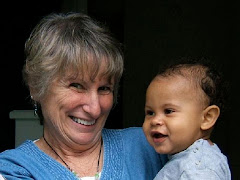Question: If I don't give my child consequences, she will never learn that all behavior has consequences even for adults. How can she learn this life lesson if we are always giving into her outrageous and unacceptable behavior?
Answer: Great question and I'm so glad you asked. Let's revisit the definition of trauma: any event that is unexpected, unprocessed, prolonged, and misunderstood is long term trauma. Examples are: abuse/neglect, medical procedures, divorce, separation from loved ones, placement in foster care, frequent moves, serious accidents, death of loved one, community violence, domestic violence. Children who have experienced any, many, or perhaps even all these life traumas, react before they respond in many situations. A child of trauma who has just hit her baby brother is not in a state of regulation and is unable to process consequences. When she hit him, she was in a state of stress because of unprocessed and misunderstood trauma. She will not learn any lesson until she is regulated. And simply learning that it is not acceptable to hit others, does nothing to heal her trauma. And most importantly it will not "stick" as a life lesson no matter what consequence is meted out. If as the parent or caregiver you are able to help her come into a regulated state, help her to understand that she isn't being threatened, she is safe and you are helping her to be safe she will begin to learn self regulation. If our child is late for school, the consequences will not necessarily help him to be on time. What helps him learn to be on time is learning how to wake up his body a bit earlier, get himself in a regulated state to face the day. Remember that the word "discipline" means to teach. Dr. Bruce Perry states: "the more you can see the world from your child's point of view and the safer you can make him feel, the better his behavior is likely to be and the more likely you are to find ways of further improving it."
Sunday, June 27, 2010
Subscribe to:
Post Comments (Atom)



No comments:
Post a Comment
I really look forward to both your questions and comments.